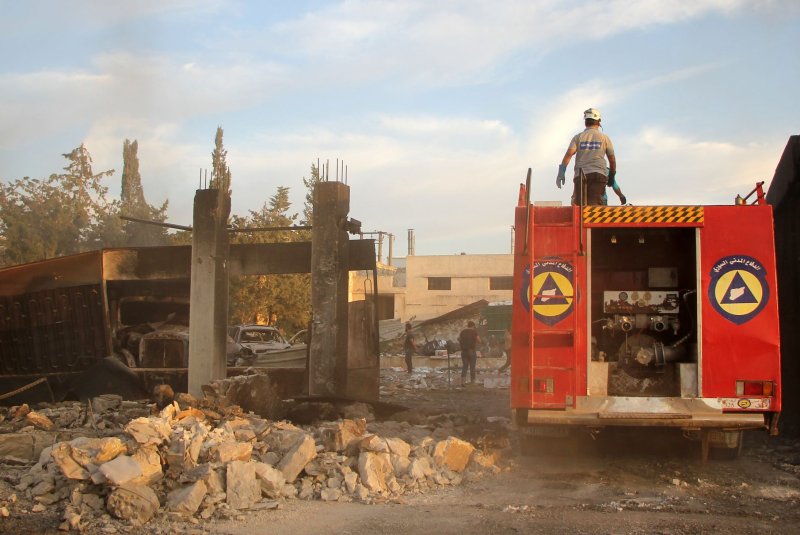If sustained, the advance in Ramousah would reverse nearly all gains rebels made in a push last month, tighten a blockade over rebel-held eastern Aleppo and ease access for the army into government-held western districts through the city's south. A second line of attack, aimed at villages south of Aleppo and supported by what a pro-government fighter called "dusk to dawn" bombardment, is intended to isolate Telat al-Eis, a hill captured by rebels in May that commands fire over the region. However, a rebel source said insurgents still held part of Ramousah and that though the army was mobilizing forces, the Jaish al-Fatah coalition of Islamist groups was still present at the southern Aleppo front.
Civil Defence members look for survivors in a damaged site after what activists said was a barrel bomb dropped by forces loyal to Syria's president Bashar Al-Assad in Al-Shaar nighbourhood of Aleppo
The battle for Aleppo has become the focus both for President Bashar al-Assad, backed by Shi'ite militias from Iraq and Lebanon, Iran's Revolutionary Guards, and Russian air power, and for the Sunni rebels seeking to overthrow him. In early August the rebel advance into southern Aleppo gave them control over the residential district of Ramousah, a complex of military colleges immediately to its west and the 1070 Apartment Blocks district west of that. It opened a corridor into the rebel-held parts of Aleppo that are home to at least 250,000 people and had been under siege for weeks, while forcing the government to access its own areas in the city by a longer, more precarious route.
Men rescue a boy from under the rubble after what activists said was explosive barrels dropped by forces loyal to Syria's President Bashar Al-Assad in Al-Shaar neighborhood of Aleppo
As international concern has mounted, the United Nations has renewed a call for weekly 48-hour humanitarian ceasefires to allow aid into the city, but efforts by Russia and the United States to agree terms for a truce are dragging. On Thursday Russian Foreign Minister Sergei Lavrov and U.S. Secretary of State John Kerry discussed by phone potential cooperation to facilitate aid deliveries. Syria's five-year war has killed hundreds of thousands and displaced 11 million, half of Syria's pre-war population, while drawing in world and regional powers, inspiring jihadist attacks across the world and sparking an international refugee crisis.
BIG REINFORCEMENTS


